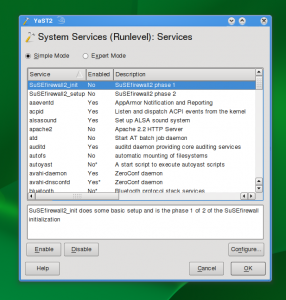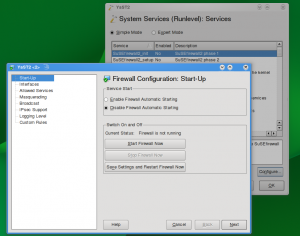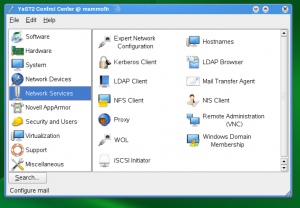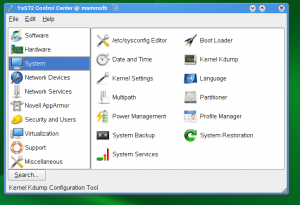7 months have been passing by since the launch of the official openSUSE forums back in June. Since then a lot has been done by both the membership and the forums team to make this a big gain for the whole openSUSE community. From now on we are going to provide status reports on a monthly basis to represent the progress we make. As this is the first issue of status reports, we’d like to provide some long-term openSUSE forums statistics along the statistics for December 2008.
Up to the 31st of December 2008, we achieved a membership of 18.772 members, 18.144 threads and 105.203 posts, which is quite a lot considering that we started with an empty database due to some technical issues we had during the merge of the three independent parties that initially joined forces. Most users ever online was 7.771 – including guests – on the 2nd of December 2008.
The following diagram shows the monthly development of new user registrations, user activity, new threads and new posts since the launch in June. The user activity measures the number of individual visits to the openSUSE forums. We started strong with the release of openSUSE 11.0, then the traffic has been slowly declining followed by another peak with the release of openSUSE 11.1.
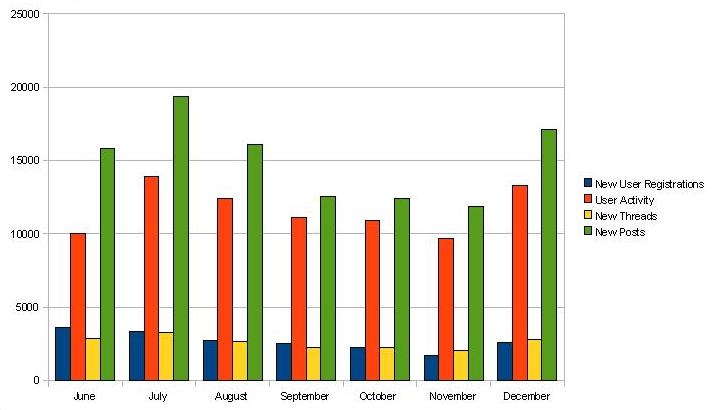
The next diagram outlines the daily statistics of the same measurements for December 2008. As you can see, the release date of openSUSE 11.1 – the 18th of December – had a significant impact on all presented measurements.
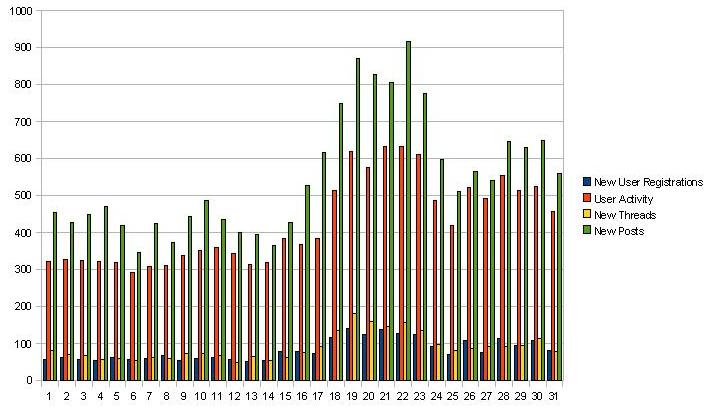
Kudos to our Top5 posters during the last 7 months…
- oldcpu – 4.558
- caf4926 – 3.643
- kgroneman – 2.536
- ken_yap – 2.375
- swerdna – 2.355
…and to our Top5 posters during December 2008.
- caf4926 – 795
- oldcpu – 658
- mingus725 – 449
- ken_yap – 441
- BenderBendingRodriguez – 284
Thanks a million for making the openSUSE forums useful.
We’d like to take the opportunity to thank the whole openSUSE community for their participation – without your great support during the last 7 months the success of the openSUSE forums would never be possible. The openSUSE forums are accessible through the website and the NNTP gateway. If you’re interested in the latter possibility, be sure to read my former article about NNTP access to the openSUSE forums.
As of the issue #49 of the openSUSE Weekly Newsletter, we present hot topics and asserted threads at a dedicated openSUSE forums section to the openSUSE community. If you are a frequent forums visitor and you’d like to contribute to this openSUSE forums section, you are very welcome to join the Newsletter Team. If you’re interested, please contact me – rhorstkoetter/at/opensuse.org – for further information.
Happy New Year from the whole openSUSE forums team!
